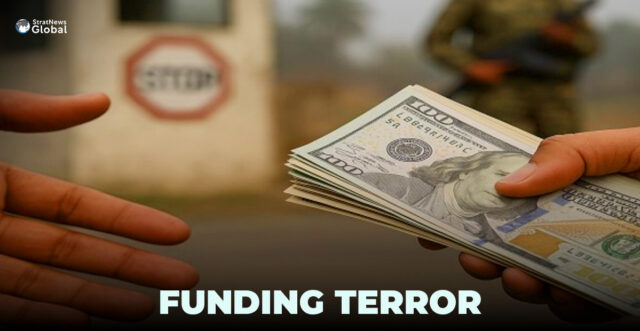The Financial Action Task Force (FATF) has released its latest Comprehensive Update on Terrorist Financing Risks, warning of an increasingly complex and decentralised terror financing landscape.
Key concerns include the abuse of virtual assets, the misuse of non-profit organisations (NPOs), and the ongoing use of informal value transfer systems such as hawala. The report outlines how groups affiliated with ISIL, Al Qaeda, and the Taliban continue to access funding through both traditional and digital means.
While FATF avoids naming specific countries or entities, its language clearly signals frustration with jurisdictions failing to clamp down on known terror financiers—a point widely interpreted as applicable to long-standing concerns about Pakistan.
According to the report, terrorist groups continue to exploit revenue streams such as donations, looting, extortion, investment returns, and drug trafficking.
ISIL and Al Qaeda affiliates remain active and are adapting their financial operations across regions, including West Africa, the Sahel, and South Asia, it notes.The Taliban regime in Afghanistan draws funding from mineral extraction, customs duties and the drug trade, creating serious challenges for counter-terror financing (CTF) frameworks.
A growing number of terrorists and their supporters are turning to cryptocurrencies, privacy coins, mixers, and decentralised finance (DeFi) tools to obscure financial flows, it warns.
The FATF emphasises the misuse of NPOs, particularly in conflict zones. While most are legitimate, some are vulnerable to infiltration and abuse, it says.
The report also highlights the role of diaspora communities and informal financial systems, especially hawala, in funnelling funds to extremist groups.
While the FATF report does not name Pakistan, its language—particularly references to “jurisdictions where designated terrorist groups and their facilitators continue to access financial systems”—is consistent with long-standing Indian reports against Islamabad.
India has repeatedly accused Pakistan of allowing sanctioned groups like Lashkar-e-Taiba (LeT) and Jaish-e-Mohammed (JeM) to operate under new names, a practice sometimes referred to as “name-laundering.”
Similarly, while the report does not mention Pakistan-based entities using cryptocurrency, analysts believe such groups are likely adapting to the same methods FATF identifies globally.
Pakistan was first grey-listed by FATF in 2008, removed in 2010, and re-listed in June 2018 for “strategic deficiencies” in countering terror financing, particularly its inaction against UN-designated groups. Given a 27-point action plan, it remained under scrutiny for over four years, with multiple deadlines extended due to slow enforcement—especially regarding financial sanctions.
Although Pakistan completed the original plan by 2021, a second 7-point action plan on money laundering was added, which was ”addressed” by mid-2022.
In October 2022, FATF removed Pakistan from the grey list after confirming “significant progress” in strengthening its Anti-Money Laundering and Countering the Financing of Terrorism (AML/CFT) systems, while encouraging continued regional monitoring via the Asia/Pacific Group (APG).
No new formal action has been taken since, but international concerns persist, particularly about the operational freedom of designated individuals and the role of unregulated charities and financial channels.
India has long accused Pakistan of harbouring and financing cross-border terrorist groups. Following earlier FATF reviews, the Ministry of External Affairs (MEA) has frequently demanded “credible and irreversible action” from Islamabad.
In March 2024, MEA spokesperson Randhir Jaiswal reiterated India’s position: “There is sufficient evidence in the public domain, including through previous FATF findings, that Pakistan has not taken credible action against key terror financing operatives. This remains a serious concern.”
The next FATF Plenary, scheduled for October 2024, will further assess how jurisdictions are addressing these evolving threats.
In a career spanning three decades and counting, Ramananda (Ram to his friends) has been the foreign editor of The Telegraph, Outlook Magazine and the New Indian Express. He helped set up rediff.com’s editorial operations in San Jose and New York, helmed sify.com, and was the founder editor of India.com.
His work has featured in national and international publications like the Al Jazeera Centre for Studies, Global Times and Ashahi Shimbun. But his one constant over all these years, he says, has been the attempt to understand rising India’s place in the world.
He can rustle up a mean salad, his oil-less pepper chicken is to die for, and all it takes is some beer and rhythm and blues to rock his soul.
Talk to him about foreign and strategic affairs, media, South Asia, China, and of course India.





